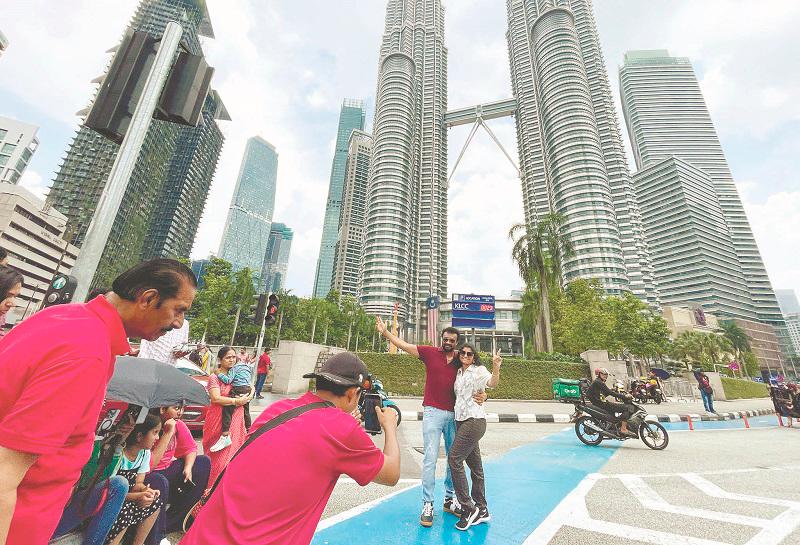PETALING JAYA: As KLCC is a major tourist attraction in Malaysia, it also grapples with the rising number of unauthorised photographers or “mobilegraphers”, disrupting visitors’ experience with increasingly frequent complaints of scams and disturbances.
Dozens of them offer photography services with KLCC as the backdrop, equipped with accessories such as lighting and smartphone flashes, while providing paid photo sessions for visitors in the area.
Universiti Teknologi Mara tourism economics lecturer
Prof Dr Mohd Hafiz Hanafiah told theSun that while stricter enforcement is necessary, it should be carried out discreetly to avoid a heavy-handed approach.
“One solution gaining traction is the introduction of a formal licensing programme for photographers, similar to New York’s Central Park, which would ensure professionalism and accountability.
“The KLCC management could aim to strike a balance by ensuring enforcement is discreet and focused on genuinely problematic photographers while helping the authorities to maintain a friendly atmosphere by using plainclothes staff to subtly monitor compliance.”
Mohd Hafiz said while it may feel “uncomfortable” for some, there is a demand for such services, and that imposing fines or legal repercussions on unauthorised photographers could be an effective deterrent.
However, it must be implemented fairly to avoid a backlash.
“The authorities should also ensure that the approach is seen as targeting only rule-breakers, without negatively impacting the local arts or tourism culture.”
Mohd Hafiz said unauthorised photographers can significantly detract from the enjoyment of KLCC visitors who may feel pressured or harassed by individuals aggressively offering photography services.
The situation is compounded when tourists or locals are confronted with demands for payment, often with hidden and unreasonable fees.
On social media, many shared their negative experiences, including being charged up to RM30 per photo.
“Examples from cities like Paris and Rome show that tourists frequently become targets for ‘hard-sell’ tactics which leave them feeling uneasy instead of fully enjoying their surroundings.
“Such encounters often lead to negative memories that can also tarnish the overall image of a popular tourist attraction
like KLCC.”
Mohd Hafiz said when unauthorised photographers scam or harass tourists, they are likely to share their negative experiences online or through word of mouth, which can have a significant impact on Malaysia’s image as a friendly and safe destination.
He said similar cases in popular spots such as the Eiffel Tower in Paris have raised concerns among tourists about the security and integrity of such attractions.
Mohd Hafiz said the authorities could introduce signage to educate visitors and increase tourism police patrols.
Discreet surveillance can further help deter unauthorised activities at KLCC without making the environment feel overly supervised.
He said signs at entry points could help educate visitors about common scams such as QR codes on ticket receipts or on-site posters.
On Monday, the KLCC management said it had banned unauthorised photography services on its premises since last year following complaints from visitors who were “scammed” and incidents of disturbances and conflicts among photographers.









